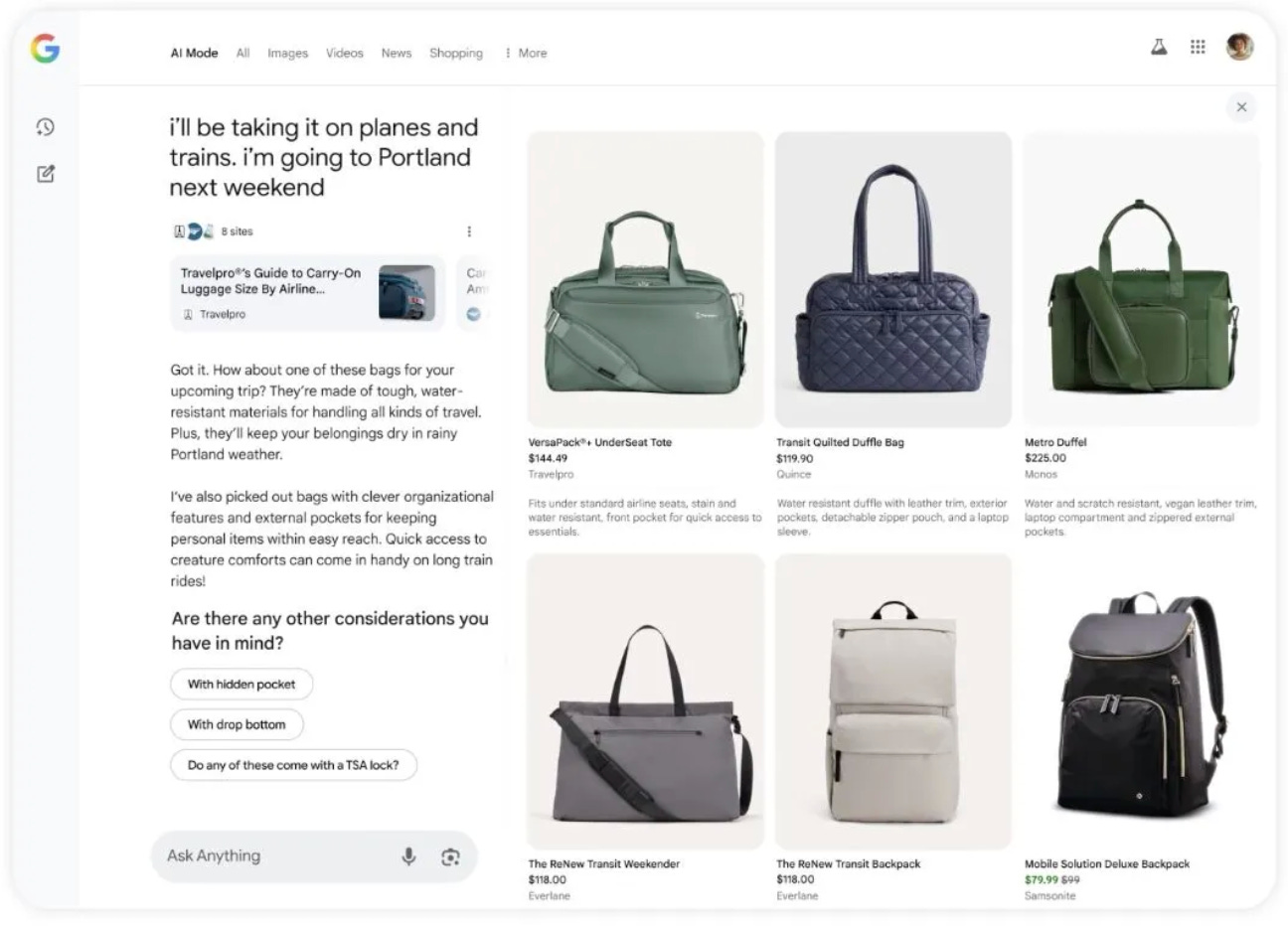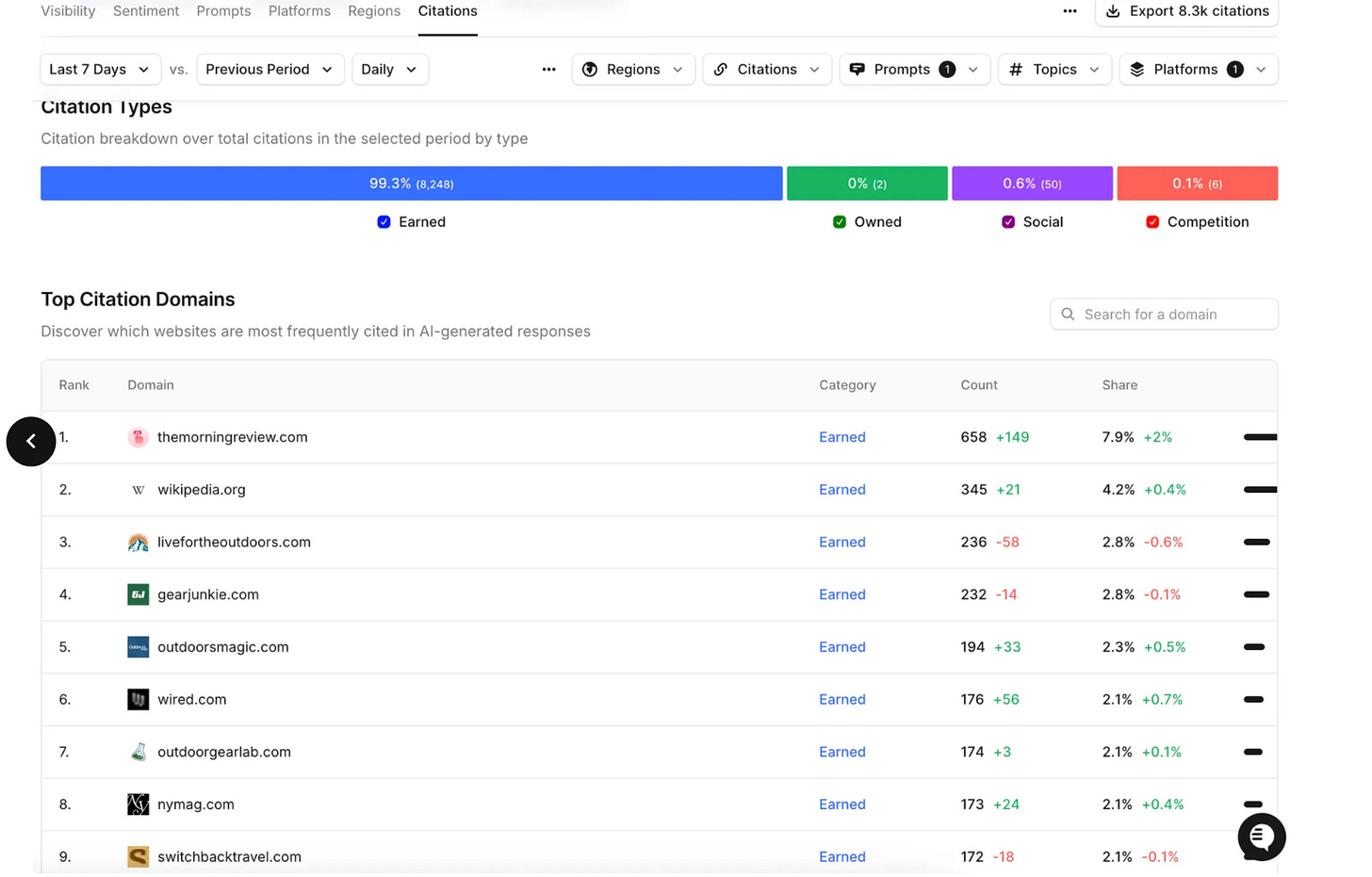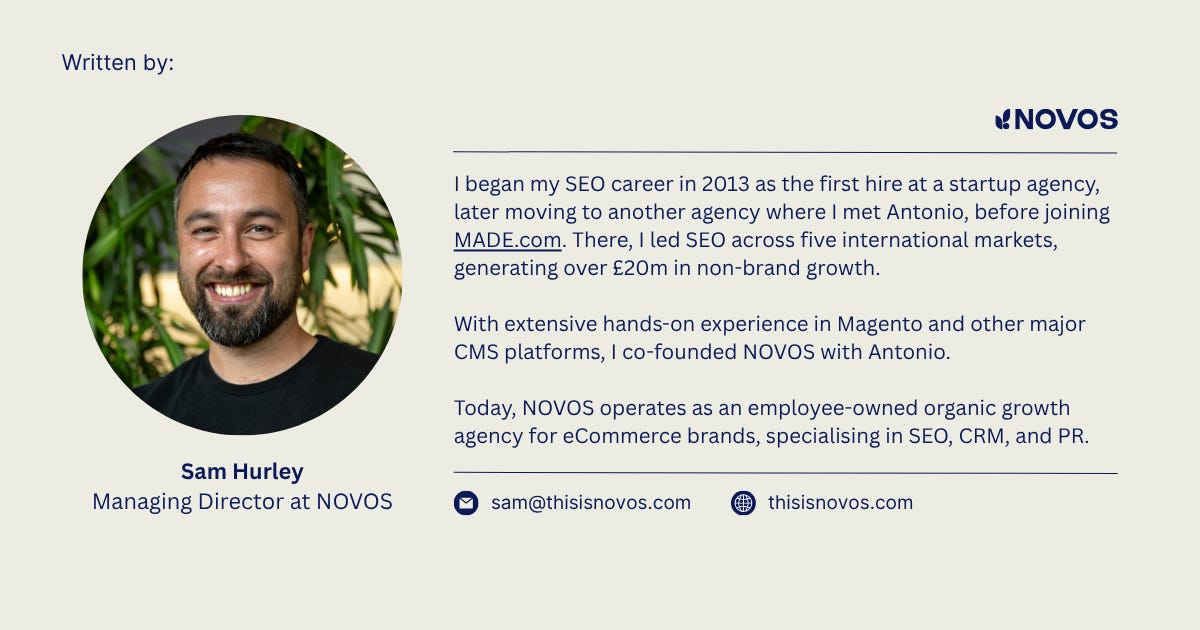AI Search is here
Summary of where we're at with the launch of AI search and the impact on eCommerce
This is a message we sent to all of our clients a few months back to keep them ahead of what’s happening in Search and to summarise many changes that have happened in recent months.
AI Search is here
AI search is actually here, and here are our thoughts > Google has just made their official announcement on the AI Mode update: https://blog.google/products/search/google-search-ai-mode-update/. Currently, it’s just rolling out in the US, but it’ll be in the UK very soon now that it’s out of testing.
We're saying it's "actually here" because while GPT and other AI tools have attempted to combine Search and AI effectively, they haven't matched Google's quality of results- you can't buy 25 years of experience and data.
However, there’s no getting away from it, GPT and other AI companies remain a significant threat to Google.
As Google adapts to the speed of GPTs and AIs adoption, we as marketers must also evolve.
For those following our Substack, you've seen our ongoing analysis of LLMs and their impact on our work and tactics. We typically avoid commenting on trending topics unless there's substantial value to share - and now is that time.
Broader trends
Google has always wanted to stop being a referral engine. Over 10 years ago, they started surfacing job ads, products, and travel listings directly on Google, killing many businesses’ share prices simultaneously (e.g., Expedia).
AI search is now doing this same thing, but for content and the rest of the funnel.
They are taking influence from the social platforms where they aim to keep you in their platform instead of referring out
GPT specifically is unlikely to drive significant traffic to businesses long-term since it rarely includes outbound links if it does they aren’t the main focus.
Searches reaching 6 words + have ballooned in the last 18 months as users are searching more like chat in Google due to changes in behaviour, AI mode no doubt will become the default homepage to accommodate this behavioural change.
We can’t change this, we just need to adapt.
Adapting
If you missed it, you can read Dan’s post here for more details and depth > https://seonovos.substack.com/p/how-does-the-rise-of-llms-impact?r=2qo9mq
Changing
The AI view will change how we report on SEO and the impact it has on businesses
Different reporting metrics > higher emphasis on brand amplification, audience and less on hard traffic to the site. Traffic will still be important of course but there’s no getting away from the trend that it’ll decline for the reasons mentioned above.
We’d expect Google to roll out more advanced reporting in Google search console in coming months to give better insights into these overviews and AI mode
Staying the same
The general tactics to influence and give Google (and LLMs) what it wants are broadly the same
Expertise, Authority and Trust remain the core quality signals for Google. They added Experience to combat generic AI content and we anticipate Effort to be included if only informally ie Effort required to create the content vs just getting AI to do it.
These AI overviews, the current narrative in the SEO world on how to optimise for them is 90% identical to how we’ve optimised for featured snippets for the last 5-7 years
Tech is even more important as GPT and other LLMs aren’t as advanced as Google so any modern advancements like Javascript they really struggle with, so for an SEO they require the same tactics we were doing in 2020
For PR/Link building is where things are changing, but only slightly. In short we’re using AI tracking tools to understand which sites they are taking the most influence from and then adding these to our prospect lists for clients.
LLMs give a higher indication of preferring niche, relevant websites and at times affiliate listicals. We have and will continue to use these new AI reporting tools to give us insights and provide more sites to target as part of our prospecting lists - and again this is why we created our relevancy metric and tool so we can give a data driven approach to scoring relevancy and not just authority of a site.
What’s New: Google
Organic shopping. Back in 2024 we knew AI mode was coming and also noticed the rise in organic shopping numbers within overall Google Shopping. So we’ve made a lot of strides into Organic shopping and will be rolling out for the majority of clients in the coming months - the ongoing work is essentially Feed CRO where we’ll be testing aspects of your products to improve CTR from Shopping. More here on the new Google Shopping and our thoughts that Google will make it more of a destination with the launch of AI mode > https://thisisnovos.com/blog/7-takeaways-about-the-new-google-shopping/
Here's a snapshot. This screenshot demonstrates our key points: it combines feed-based and content-based results. The personalisation features can now be stored, for example, when searching from Portland, results could then automatically localised to that area next weekend. Usage-focused content is crucial, as detailed in Dan's post above. You'll notice content is much more prominent here, especially listicles based on our testing. This prominence has led us to explore expanding our link building service to incorporate listicle-style affiliate sites, given their significant influence on LLMs - still exploratory at the moment, if you are interested in exploring let us know.
The new AI mode has the potential to take personalised search to a different level which could have a big impact on retention and repeat users - another area where SEO + CRM can collaborate.
What’s New: Others
We’ve been doing a few projects with clients around optimising wider search engines eg Pinterest + tiktok. This varies by industry eg Pinterest is a must for interiors, less so vitamins.
We’re also keeping a close eye on Amazon and their exploration of purchasing products not listed on their platform directly - this is still early days.
Emphasis more on brand amplification rather than pure traffic play which has been a slow trend anyway since GA4 killed reliable reporting (more on this in coming weeks, very nuanced and needs a detailed write up - follow our substack here for more info >
We’ve also got access to LLM reporting and data but for its still early days with limited actions/changes beyond the point referenced above for AI citations, eg see this example below for Osprey
Summary
When AI mode is released across all markets it’ll represent the most significant shift in Search potentially ever.
Our perspective is that Organic Search uniquely bridges both performance and brand metrics - no other channel can accomplish this as effectively.
As a performance channel, SEO's impact can be challenging to measure. However, when viewed as a brand channel, SEO becomes one of the most data-driven, trackable, and powerful brand channels available (more on this in the coming weeks).
We recommend viewing 'organic search' holistically. In the past, the focus was solely on rankings to drive traffic on Google through technical optimisation, content creation, and link building.
Today, it's about using broadly the same tactics to reach an engaged audience across multiple platforms when they're actively interested in your topic. These platforms will soon include:
Google Search
Google Shopping
GPT, Perplexity + others
GPT Shopping
Pinterest
TikTok
External coverage on niche relevant sites (PR/Links)
Google’s finally got some competition and we’re all for it.







